News
-
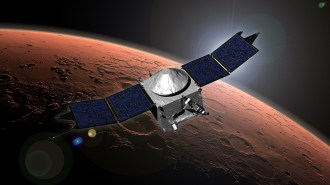 Space
SpaceNASA’s MAVEN probe shows how wind circulates in Mars’ upper atmosphere
By using the MAVEN spacecraft to track winds in the Martian thermosphere, researchers hope to better understand how the atmosphere leaks into space.
-
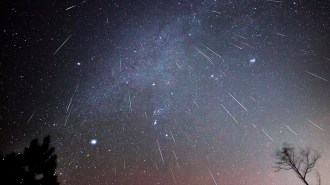 Space
SpaceNASA’s Parker probe has spotted the Geminid meteor showers’ source
For the first time, we’ve spotted the trail of space debris responsible for the Geminid meteor shower.
-
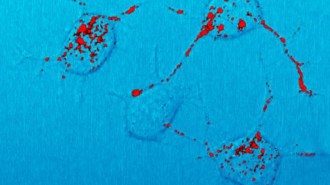 Life
LifePrions clog cell traffic in brains with neurodegenerative diseases
Prions may derail cargo moving inside brain cells, perhaps contributing to cell death in prion diseases.
-
 Earth
EarthFlooding Earth’s atmosphere with oxygen may not have needed a triggering event
Building an oxygen-rich world doesn’t require volcanism, supercontinent breakups or the rise of land plants — just nutrient cycling, a study finds.
-
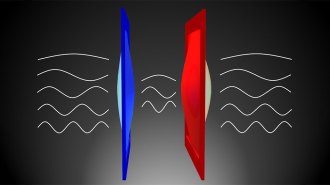 Quantum Physics
Quantum PhysicsQuantum jitter lets heat travel across a vacuum
In a first, scientists observed tiny, vibrating membranes exchanging heat due to quantum fluctuations.
-
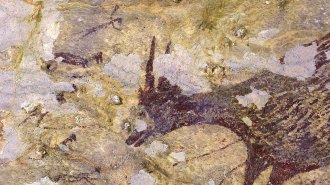 Archaeology
ArchaeologyA nearly 44,000-year-old hunting scene is the oldest known storytelling art
Cave art in Indonesia dating to at least 43,900 years ago is the earliest known storytelling art, and shows otherworldly human-animal hunters.
By Bruce Bower -
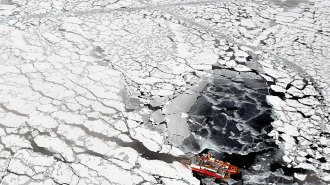 Climate
ClimateHow the Arctic’s poor health affects everyday life
A new NOAA report features testimony from indigenous communities in Alaska who are weathering the impacts of Arctic warming.
-
 Earth
EarthFingerprints of climate change are increasingly appearing in extreme weather
A new report finds evidence that some of 2018’s extreme weather events were linked to human-caused climate change.
-
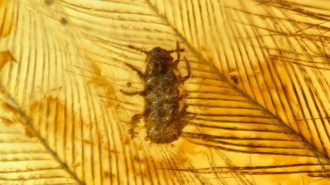 Paleontology
PaleontologyLicelike insects munched on dinosaur feathers around 100 million years ago
Fossils in amber push the origin of feather-feeding insects back over 50 million years, a study finds.
By Sofie Bates -
 Climate
ClimateSee how an Alaskan glacier has shrunk over time
Scientists have created a time-lapse series of images of the retreat of an Alaskan glacier using NASA and U.S. Geological Survey Landsat data.
-
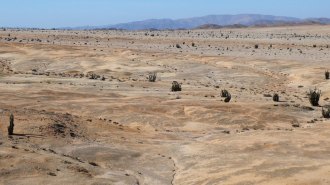 Ecosystems
EcosystemsA newly found Atacama Desert soil community survives on sips of fog
Lichens and other fungi and algae unite to form “grit-crust” on the dry soil of Chile’s Atacama Desert and survive on moisture from coastal fog.
By Jack J. Lee -
 Space
SpaceElectric charges on dust grains may help explain how planets are born
In an experiment, glass beads clung together like protoplanetary dust particles when shaken and flung more than 100 meters skyward.